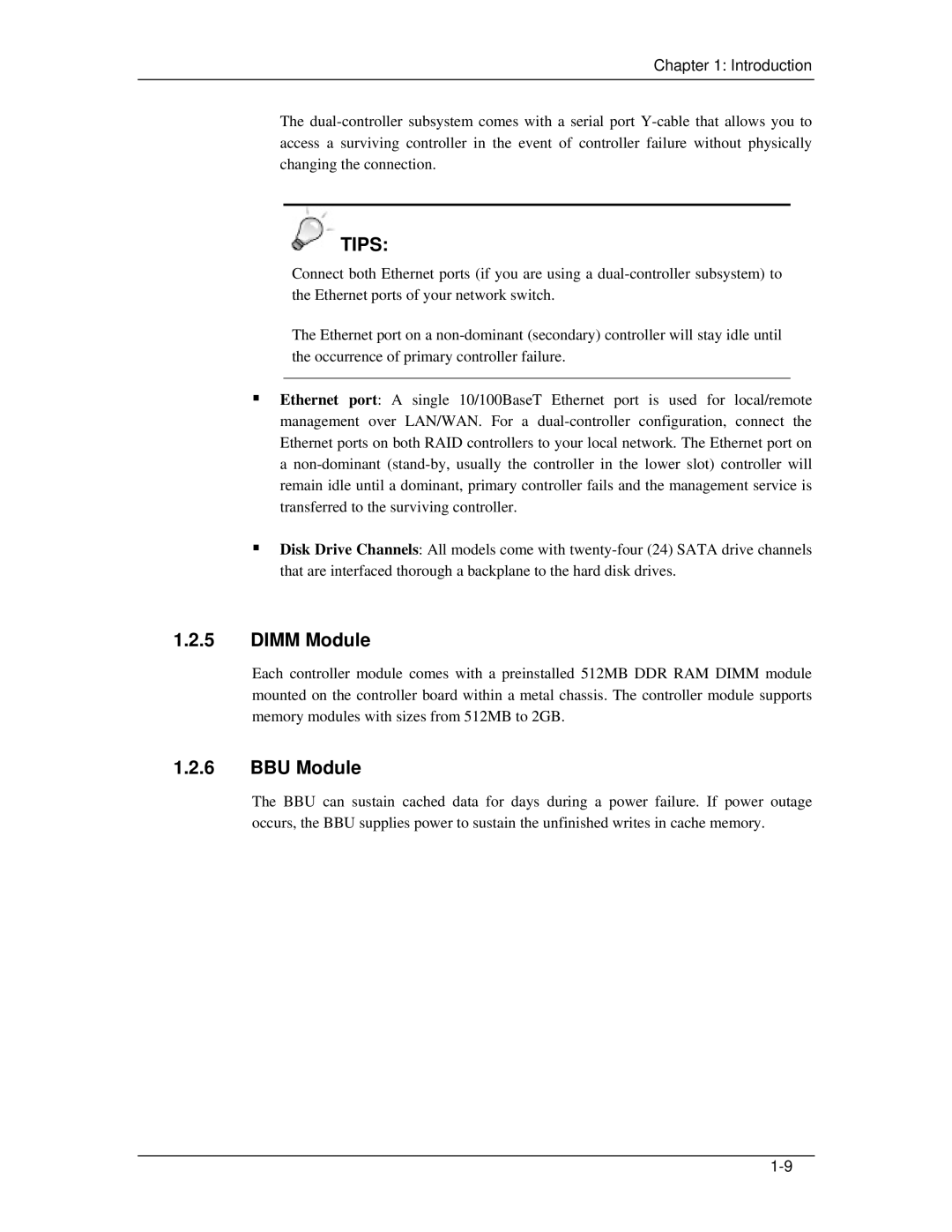
Chapter 1: Introduction
The dual-controller subsystem comes with a serial port Y-cable that allows you to access a surviving controller in the event of controller failure without physically changing the connection.
 TIPS:
TIPS:
Connect both Ethernet ports (if you are using a dual-controller subsystem) to the Ethernet ports of your network switch.
The Ethernet port on a non-dominant (secondary) controller will stay idle until the occurrence of primary controller failure.
Ethernet port: A single 10/100BaseT Ethernet port is used for local/remote management over LAN/WAN. For a dual-controller configuration, connect the Ethernet ports on both RAID controllers to your local network. The Ethernet port on a non-dominant (stand-by, usually the controller in the lower slot) controller will remain idle until a dominant, primary controller fails and the management service is transferred to the surviving controller.
Disk Drive Channels: All models come with twenty-four (24) SATA drive channels that are interfaced thorough a backplane to the hard disk drives.
1.2.5DIMM Module
Each controller module comes with a preinstalled 512MB DDR RAM DIMM module mounted on the controller board within a metal chassis. The controller module supports memory modules with sizes from 512MB to 2GB.
1.2.6BBU Module
The BBU can sustain cached data for days during a power failure. If power outage occurs, the BBU supplies power to sustain the unfinished writes in cache memory.

 TIPS:
TIPS: